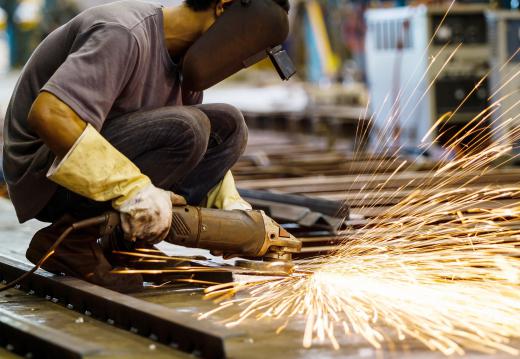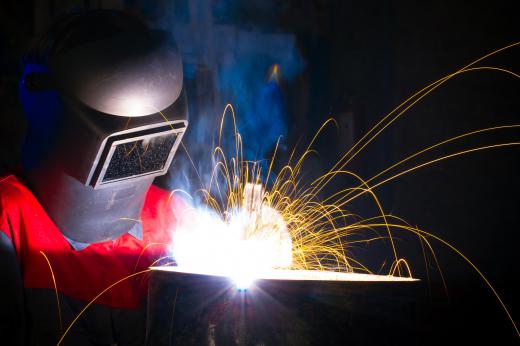Most often used in welding, a blowtorch is a device that uses combustible gas to make flames hot enough to provide precise cuts in metal or fuse metal pieces together. Also called blowlamps, types of blowtorches range from professional grade to small kitchen torches found in culinary stores. The type of blowtorch used depends on the type of task involved.
Though blowtorches are most often used in welding, plumbers also use them when soldering pipes. Additionally, chefs will use smaller torches in certain recipes, such as crème brule which requires sudden high heats to caramelize its sugary top, or to roast vegetables. Many other people own a blowtorch for tasks like building or fixing cars or mending metal. Some people even use them to light cigars.

Despite how common blowtorches may be, they are dangerous and can cause explosions when not handled correctly. Welding torches reach 5,000-6,000°F (2,760-3,316°C), and the sparks that are caused are actually liquefied pieces of metal. Welders always wear gloves, aprons, and face masks because of the high heat and molten metal.
Usually called oxyacetylene torches, professional torches often use an acetylene-oxygen mix. An oxyacetylene torch can be very unstable and may explode if not handled properly or if handled too roughly. The oxyacetylene is usually dissolved in acetone to help keep it stable, but even then it is still volatile.

Another type of professional blowtorch uses a methylacetylene-propadiene (MAPP) gas oxygen mix. MAPP gas is more stable that oxyacetylene and can be used underwater, so this type of blowtorch is often used to repair ships. A MAPP gas torch, however, does not burn as hot an oxyacetylene torch.
Lit by a pilot light, a professional grade blowtorch consists of two cylinders, one for the oxygen and one for the fuel, and a metal head with a removable tip, which can be changed depending on the task. Two regulators and two color-coded rubber hoses connect the canisters to the torch. The regulators are adjustable and control the torch's gas pressure.

Small non-professional blowtorches use butane or propane. Propane or butane torches do not have an oxygen cylinder inside them. Instead, they use outside air to burn the gas they contain, much like simple lighters. For this reason, they are cooler than professional torches, but do reach 3,200-3,800°F (1,760-2,093°C). Non-professional blowtorches can be found in hardware stores, and as well as some gourmet food stores.
